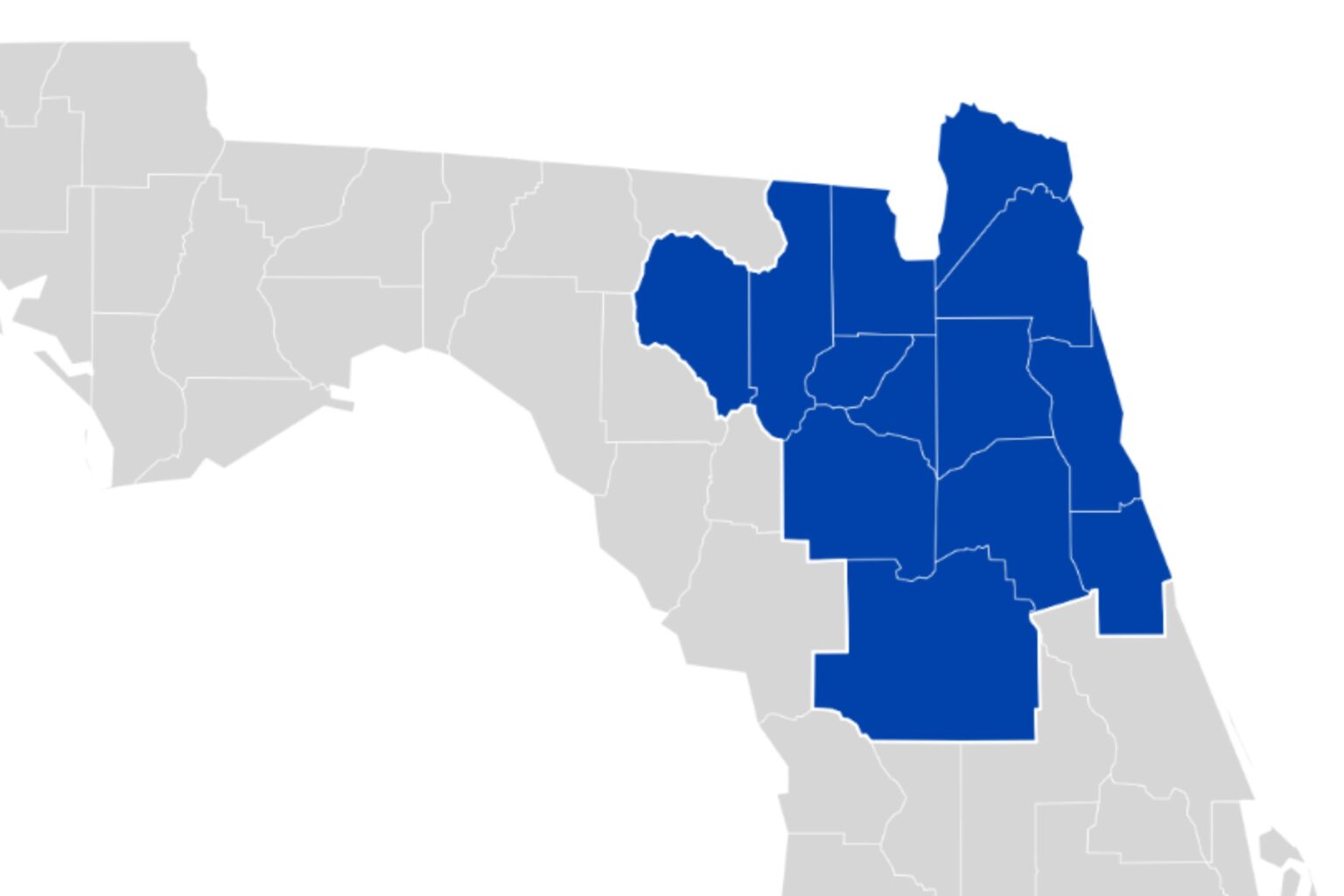Numerous counties in Florida can expect bitterly cold temperatures on Friday, with warnings issued to keep pets and vulnerable people safe by the National Weather Service (NWS).
Sub-freezing temperatures are expected across parts of Florida and neighboring southern states thanks to a widening of the polar vortex—the area of cold air that circulates around the Arctic.
Why It Matters
Freeze warnings are put in place by the NWS when temperatures are expected to reach below 32 degrees Fahrenheit and can pose a risk to humans, pets, plants and crops.
What to Know
As it currently stands, freeze warnings are in place for the following Florida counties:
- Alachua
- Baker
- Bradford
- Clay
- Columbia
- Duval
- Flagler
- Hamilton
- Marion
- Nassau
- St. Johns
- Putnam
- Suwannee
- Union
According to the NWS, lows of 27 degrees are expected across northeastern Florida and southern Georgia throughout Friday night, with most freeze warnings expiring in the morning.
The NWS advises keeping pets indoors during these cold spells, “especially if they are sensitive to the cold weather due to age, illness or breed type.”
According to a report by AccuWeather, there is also a risk to wildlife, particularly iguanas, when temperatures drop. The forecaster explained that green iguanas, which were brought to Florida from Central and South America several decades ago, can struggle to cope with the cold and can enter a “cold-stunned state” if temperatures dip into the mid-40s. However, they are not dead; their respiratory functions and other critical bodily processes continue to function.
What People Are Saying
NWS in its freeze warning for northeast and northern Florida: “Appropriate action should be taken to ensure tender vegetation and outdoor pets have adequate protection from the cold temperatures. Young children, the elderly and the homeless are especially vulnerable to the cold. Take measures to protect them.”
Alan Rozanski, professor of medicine at Icahn School of Medicine at Mount Sinai, told Newsweek: “Cold temperatures, especially extreme cold, pose significant health risks, particularly for vulnerable individuals. Exposure to cold activates receptors in the skin, causing blood vessels to constrict to conserve body heat. This reaction increases catecholamine levels, raising heart rate and blood pressure.
“Dress in multiple layers and wear hats, gloves, and scarves. Keep indoor temperatures at a comfortable level. Minimize sudden transitions to cold environments (e.g., warm up your car before use). Avoid outdoor activities during the coldest parts of the day, such as early morning or late night.”
What’s Next
While freeze warnings will expire throughout Friday morning, cold temperatures are expected to stick around for some time in the Sunshine State. Maps from Pivotal Weather show there is a 90 percent chance that temperatures will remain below normal for this time of year through to Sunday, January 19.
In Florida, daytime temperatures can reach highs of 71.6 degrees, while nights cool down to around 48 degrees at this time of year.
Read the full article here


